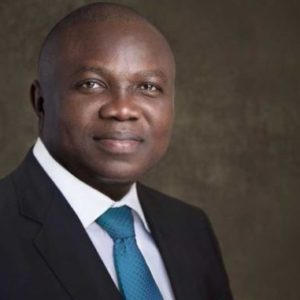The Governor of Lagos State, Mr. Akinwunmi Ambode, has said that the state will continue to face the influx of people from other states of the federation because their states failed economically.
The governor who said this at the 75th Anniversary Business Lecture of the Island Club in Lagos yesterday, disclosed that at least 87 people enters the state per hour daily with no plan of leaving.
He lamented that these has put pressure on the physical and infrastructural system of the state which cannot meet the demand.
In his lecture: “Nation Building: Communities, Inclusion and Prosperity,” the governor said that if the country must get out of the woods, it must begin to take concrete steps towards empowering every group in the society and end extreme poverty.
Ambode said that the population of the state is currently 24 million people, adding that at the rate it is growing, it may hit the 34 million mark in the next 10 years, a situation which will make it one of the five largest cities in the world.
“We believe that every Lagosian must have the opportunity to grow, develop their own skills and contribute to their families and communities in a meaningful way.
“If they are healthy, well educated and trained to enter the workforce and are able to make a decent wage, they are better equipped to meet their basic needs and be successful. Their families will also do well and the whole society will benefit. The aggregate sum of family well-being is the meat for nation building,” he said.
Ambode insisted that Nigeria must aggressively pursue strong social inclusion policies in order to build a virile nation where every member of the society, regardless of their status or creed is catered for.
“A sustainable path towards ending extreme poverty and promoting shared prosperity also involves creating an inclusive society, not only in terms of economic welfare but also in terms of the voice and empowerment of all groups.
“We must begin to realise that every strata of the society counts, we must listen and accommodate all views, whether they are poor, whether they are Igbos, Hausas, whether they are Muslims or Christians. An inclusive society must have the institutions, structures and processes that empower local communities, professional associations, artisans, CDAs so they can hold government accountable.
“It also requires the participation of all groups in society, including traditionally marginalised groups such as ethnic minorities and indigenous populations in decision making processes,” he said.
According to him, his administration has concentrated on creating an environment for investments to thrive, saying that deliberate steps were also taken to encourage the private sector to take the front seat and grow the Gross Domestic Product (GDP) of the State.
Also speaking, a former chairman of the Club, Chief Olumuyiwa Falomo, lauded the governor for his developmental strides in the last three and half years, assuring him that history would be kind to him.
“Only God knows the future, just carry on regardless, the reward of being very conscientious with what you do will come sooner than later and my prayer for you is that God will guide you and the sky will be your limit,” Falomo said.
